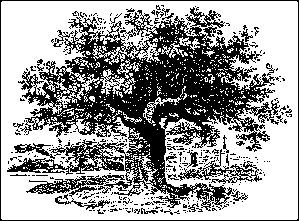Want to Write
Another Stupid
Book Review
For RALPH
|
Ms Gips wass one of our regular reviewers. A couple of years before she died, we sent her several poetry books, and this was her response. |
-
Thou was not born for death, immortal Bird!
No hungry generations tread thee down;
The voice I hear this passing night was heard
In ancient days by emperor and clown:
Perhaps the self-same song that found a path
Through the sad heart of Ruth, when sick for home,
She stood in tears amid the alien corn...
Or H.D.:
-
Wash of cold river
in a glacial land, Ionian water,
chill, snowribbed sand,
drift of rare flowers...
 I know poetry and poetics didn't die. In our country, in our century, there have been e e cummings and William Stafford and Mary Oliver and others, realist and surrealist, weaving enchantment with rhythm of alliteration and rhyme and, oh, forgive me, I can't help it, I love the word so:
I know poetry and poetics didn't die. In our country, in our century, there have been e e cummings and William Stafford and Mary Oliver and others, realist and surrealist, weaving enchantment with rhythm of alliteration and rhyme and, oh, forgive me, I can't help it, I love the word so:
Of course it takes some work, and if you're writing to relieve your angst or your anger or work through some dark karma, you may not desire to take the time to learn. Helga Wolski (who now writes charming books from her home in Tiberias) and I were friends at Mills College, many, many years ago, and she created the following immortal lines:
I just realized I don't feel like doing this review at all. The editor always forgets to pay me anyway, or makes stupid excuses, and I only do it because I have known him for more than thirty-five years, and I know that even though he is a terrible accountant, always forgetting to send out our royalty checks, he has a good heart nonetheless. Therefore, I don't have to read these poems, some good, some terrible. Hooray.
Every day I get books I don't ask for from people I don't know. They worked hard writing them and want me to help them --- to interview them, or read their lines on the air, or put them on the internet. But their books are just one of the sixty thousand titles that come out every year in the United States. These books are 5/60,000. You figure it out. Me, I'm the happiest almost unpublished poet in America. I started writing poems before I knew my ABCs. And once, when I was eleven or thirteen, I met Robert Frost. I remember his great smile, and his white hair like the blowing tassel atop the ripe corn. I showed him my poems, and he told me to lighten up. You'll make a great poet, he said.
Don't be so serious, he told me. I'm going to send this to my multi-named, multi-person friend-editor without listing the books. In fact doing nothing more than to tell you that while I was laboring over this that I could have been online, or reading William Stafford. Stafford's great poem,
Oh, God, I can think of nothing worse,
I think she was 15 then.
than publishing a thin book of verse.
Finally, you should always try to remember what Browning said, in "Memorabilia:"
Starting here, what do you want to
remember?
And ends:
How sunlight creeps along a shiny floor?
What can anyone give you greater than now
I wish I had known him before he died. Oh, how I wish I'd known John Keats, too. I would never have let him fall for that silly girl, Fanny Brawne --- the one who could never understand nor love him.
starting here, right in this room, when you turn around?
Ah, did you once see Shelley plain,
That's my favorite Browning, next to his line about the moon ("Do I carry the moon in my pocket?") and the one about Spring:
And did he stop and speak to you
And did you speak to him again?
And how strange it seems, and new!
Oh, to be in England
Which is one reason I love to watch the Monarch butterflies clustering like Christmas ornaments in the sunlit pine trees in the Sierras on a warm spring day --- when the whole meaning of time and life and the world comes achingly round the slopes to intersect with the sweet reality that in thirty or sixty or a hundred years you and I and everyone else on this planet will be sailing through space as a billion newformed neutrinos on their way to the next galaxy, sailing silently through the absolute silence of space. Not unlike the Monarch butterflies, arching up from pine-needle to pine-needle --- neither knowing nor caring that you and I are watching them, not caring that our eyes are filled with tears at the wonder of it all, at the joy of knowing that they, and London, and April, and the tiny leaves, and Browning's poetry (and Stafford's, and Frost's, and H.D.'s) will always be there, forever and ever. With or without us.
Now that April's there,
And whoever wakes in England
Sees, some morning, unaware,
That the lowest boughs and the brushwood sheaf
Round the elm-tree bole are in tiny leaf,
While the chaffinch sings on the orchard bough
In England --- now!

Ms. Gips Homepage was "Changes,"
which is hidden inside the letter-box below.